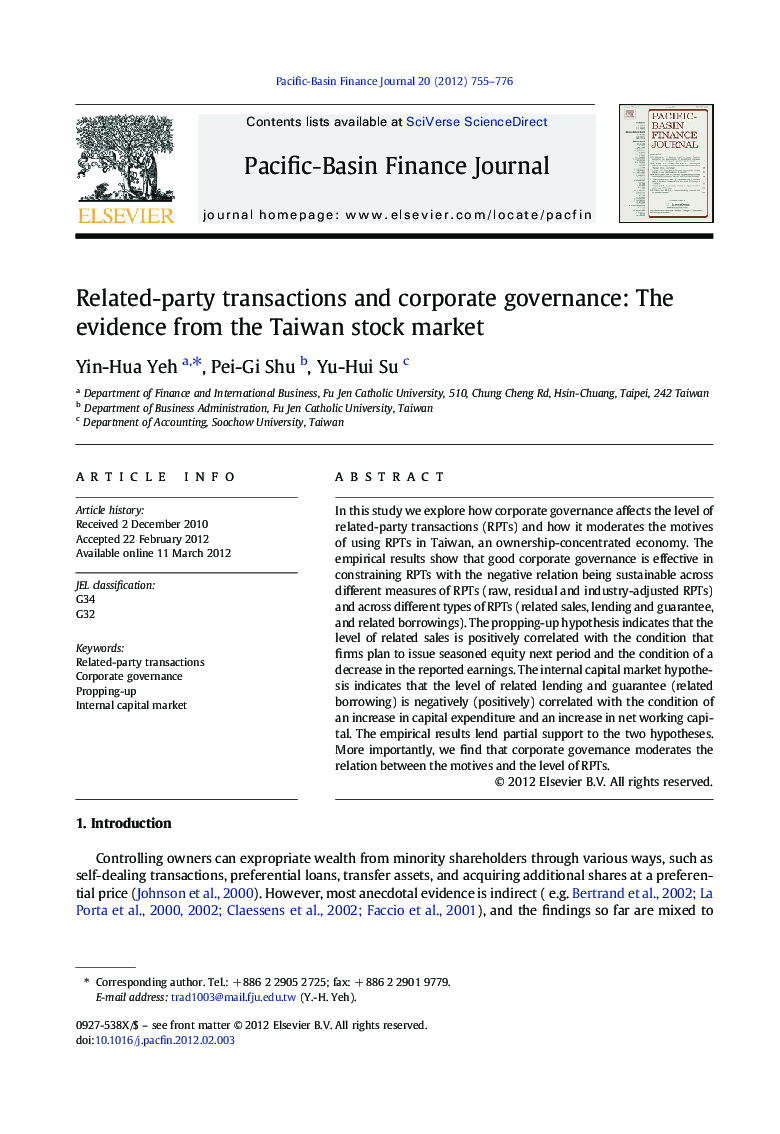| Article ID | Journal | Published Year | Pages | File Type |
|---|---|---|---|---|
| 973109 | Pacific-Basin Finance Journal | 2012 | 22 Pages |
In this study we explore how corporate governance affects the level of related-party transactions (RPTs) and how it moderates the motives of using RPTs in Taiwan, an ownership-concentrated economy. The empirical results show that good corporate governance is effective in constraining RPTs with the negative relation being sustainable across different measures of RPTs (raw, residual and industry-adjusted RPTs) and across different types of RPTs (related sales, lending and guarantee, and related borrowings). The propping-up hypothesis indicates that the level of related sales is positively correlated with the condition that firms plan to issue seasoned equity next period and the condition of a decrease in the reported earnings. The internal capital market hypothesis indicates that the level of related lending and guarantee (related borrowing) is negatively (positively) correlated with the condition of an increase in capital expenditure and an increase in net working capital. The empirical results lend partial support to the two hypotheses. More importantly, we find that corporate governance moderates the relation between the motives and the level of RPTs.
Research Highlights► Good governance constrains different measures and types of related-party transactions (PRTs). ► Propose conditions to test the propping-up hypothesis and the internal capital hypothesis. ► The empirical results lend partial support to the two hypotheses. ► Corporate governance moderates the relation between the conditions and the use of RPTs.
